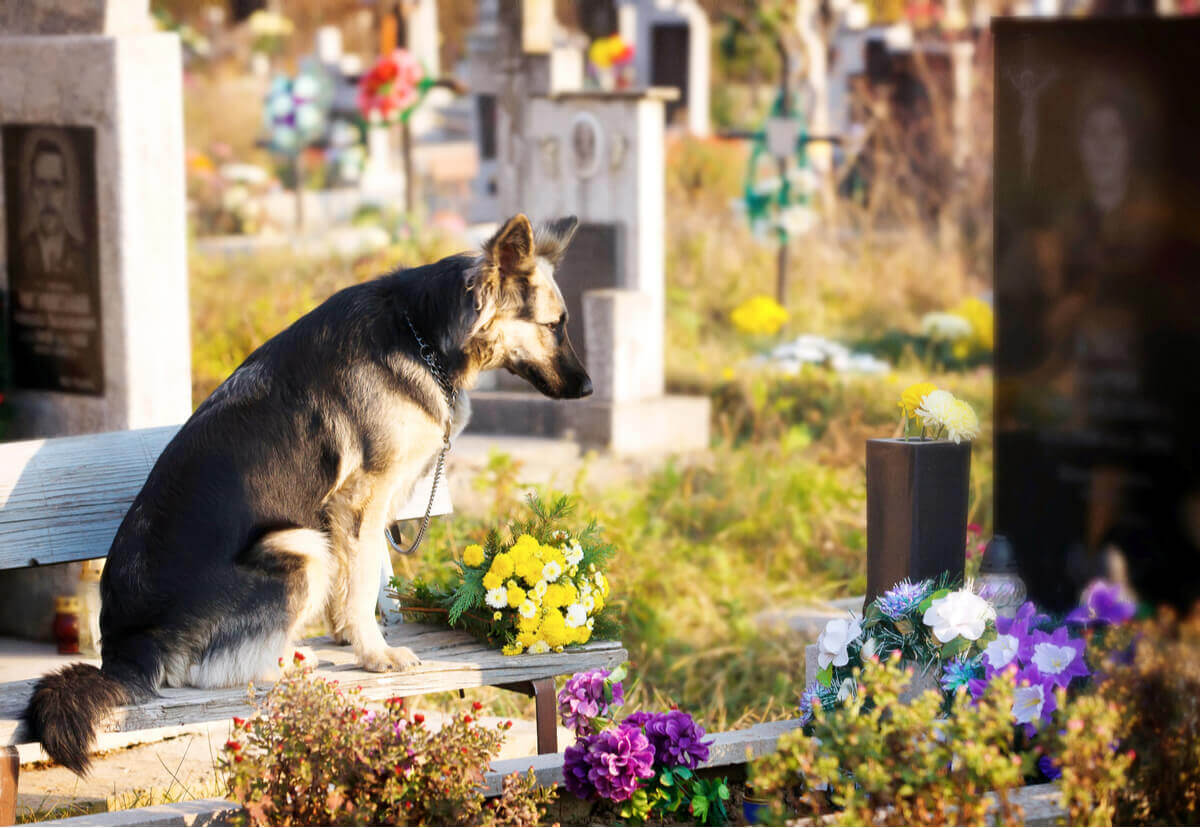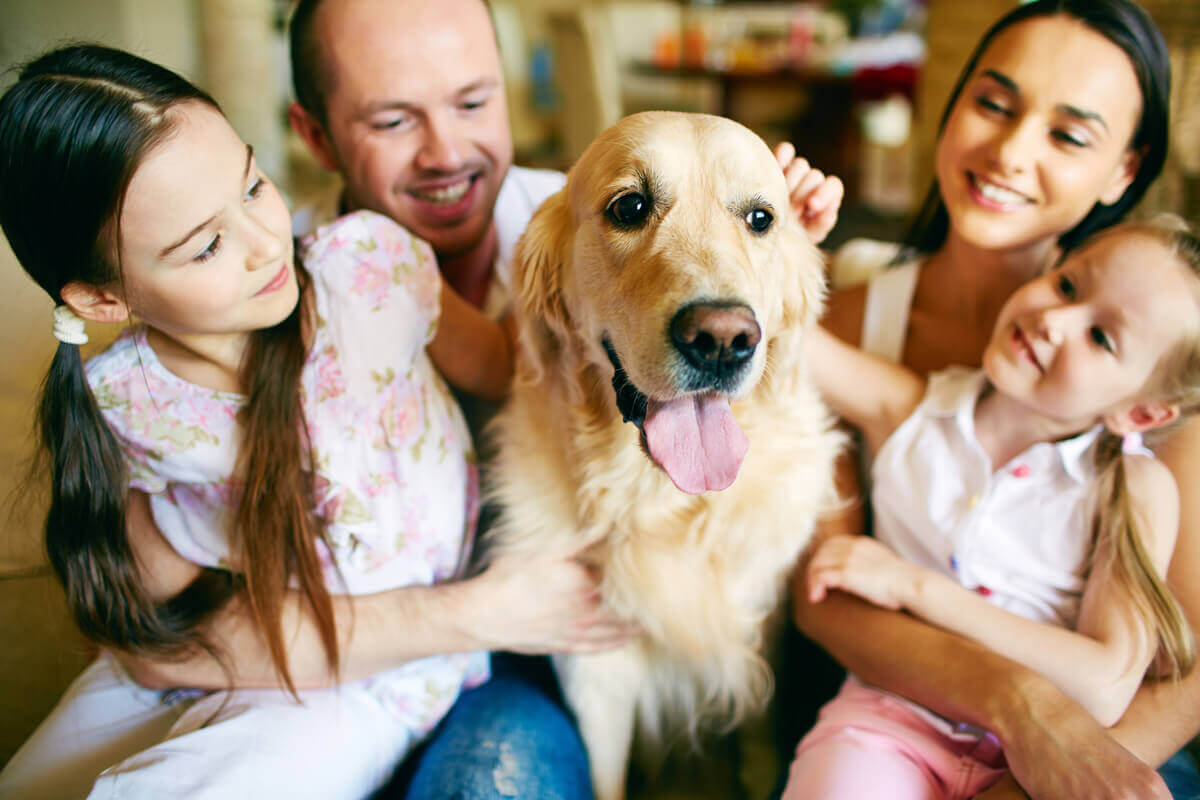Coping With the Loss of a Pet: What Does Science Say?


Written and verified by the biologist Samuel Sanchez
As all pet guardians know, the loss of a pet is a very delicate grieving process, in many cases comparable to the death of a family member or acquaintance. After all, canine, feline, or other companions have seen us grow, develop, and have been with us in the best and saddest moments. Even so, there are branches of science that try to understand our response to the loss of a pet beyond the merely speculative field. Here’s a study that attempts to describe how we as humans understand this process. Keep reading to find out what science has to say about coping with the loss of a pet.
The emotional response when coping with the loss of a pet
Half of all households in the United States have a pet, and in most cases, both adults and children consider them to be members of the family. Animals produce incredibly beneficial responses in humans, with studies showing that they lower cardiovascular pressure, reduce stress levels, and promote healthy habits such as routine physical exercise.
At this point, it’s important to note that every human being perceives the loss of a loved one in a different way, and each is equally valid. On a general level, several bibliographic reviews report the following symptoms among guardians who have recently lost their pet:
- A change in normal social patterns
- Difficulty falling asleep
- Difficulty eating
- Recurrent thoughts about the lost pet
- Taking time off from work
But there’s more to it than that because, according to statistical analysis, 93 % of people who required social intervention after the death of a pet presented alterations in eating and sleeping rhythms. Of these, 70% also had episodes of social isolation and a need to be alone.
Clearly, these responses don’t apply to all guardians, as the level of grief depends on factors such as the level of attachment, the strength of the attachment, and the reason for the attachment.

A statistical approach to coping with the loss of a pet
A study published in the journal Antrhozoos journal attempts to shed some light on the response of owners to the loss of a pet. For this purpose, 49 people who had suffered the death of an animal in their home environment were monitored for three weeks. Emotional variables were collected through meticulously designed questionnaires.
Some of the results observed were as follows:
- After the first weeks of the loss, the owners showed emotional variables (sadness and guilt, among others) very similar to those experienced by people who had lost a loved one.
- The larger the immediate family environment, the less grief was experienced by the owner.
- More than half of the monitored guardians decided to get a new pet after six months of bereavement.
- In these cases, emotional symptoms decreased more rapidly in the guardians with a new animal companion than in those who decided not to adopt again.
- A third of the people knew that the animal’s death was imminent, but this didn’t make the grieving process any easier.
These data may seem surprising to anyone who’s never lived with a pet for long periods of time, but they’re surely not unfamiliar to any experienced pet owner. After all, pets are, in some cases, the only living elements in the routine of many humans.
An exercise in commitment
After internalizing the above facts, some people may come to the conclusion that it’s not worth it to bring a pet into the family if the pain of losing a pet is so acute and intense. To them we ask, is it better to grieve the loss of a pet, or to regret never having enjoyed having one in the first place?
The connection that an owner can feel with their pet is unique and irreplaceable. In addition, as we’ve already said, the presence of an animal in the family brings many benefits to all members, from respect for and understanding of nature to the improvement of physiological variables in the body.

Finally, we’d like to remind all owners that the grieving process is just another part of life, just like death itself. Crying, sadness, and discomfort are normal, but little by little, that pain eventually dissipates and gives way to remembrance.
In the end, that pet that once ran around your home will always be an important part of your mind and heart, and therefore, will never completely disappear.
All cited sources were thoroughly reviewed by our team to ensure their quality, reliability, currency, and validity. The bibliography of this article was considered reliable and of academic or scientific accuracy.
- Kingwell, B. A., Lomdahl, A., & Anderson, W. P. (2001). Presence of a pet dog and human cardiovascular responses to mild mental stress. Clinical Autonomic Research, 11(5), 313-317.
- Gerwolls, M. K., & Labott, S. M. (1994). Adjustment to the death of a companion animal. Anthrozoös, 7(3), 172-187.
This text is provided for informational purposes only and does not replace consultation with a professional. If in doubt, consult your specialist.